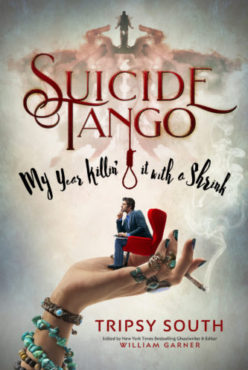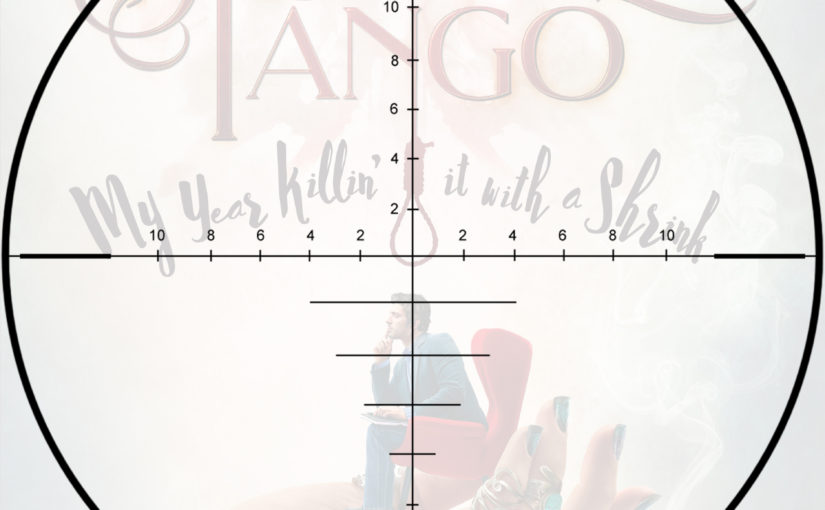SUICIDE TANGO is now on sale on Amazon!
Haters needs lovin’, too, so I’m sharing some reasons why you should NOT buy my new novel. According to the haters, at least. In the interest of accuracy, I preserved the reviewers’ original spelling, grammar and improper (or lack of) punctuation.
“I highly dislike this book. It is arrogant, badly written and yet uses complicated and archaic language which the reader is simply expected to comprehend. The author appears convinced they are far more intelligent than readers, and the obvious basking in this takes away from the story. The bad grammar, repetition and pointless drawings, all show that no matter how brilliant the author believes this book is, it really isn’t. I received an advance copy of this novel curtesy of Netgalley but all opinions are my own”
—Rebecca Wright (1 Star, NetGalley.com Reviews)
“Ridiculous, arrogant, condescending, dull.. You might find humor in the extreme hubris, but then again you might just find the constant ‘schooling’ just grates on your nerves. This serious subject deserves better than this object-lesson in the dangers of self-publishing.”
—Amanda Clay (1 Star, NetGalley.com Reviews)
“I don’t think I have experienced such strong dislike for a book since required reading in high school. I imagine the narrator-type character is supposed to be disliked, but it was extremely difficult to make myself read this. It highlights everything that’s wrong with psychiatry–the condescension, the self-importance. I will say that the tone they have is pretty accurately represented. If you at all have any experience with mental illness and/or therapy, this is probably not the book for you. If you want a sensationalized wild ride, then this will probably do it.”
—Stacie Taylor (1 Star, NetGalley.com Reviews)
“This novel (also titled “WTF Dorkus”) did elicit really strong emotions for me – unfortunately, they weren’t positive ones. I had a whole host of issues with this book, but here are the main ones. The writer completely missed the mark on accurately describing mental illness, a working therapist-patient relationship, and how people actually experience suicidality. I get that the author was trying to write a satire, but that form has to be based in reality to work. Instead, this felt completely irresponsible. Now, anyone who reads this will think teenagers who are suicidal are merely acting out to get attention or that it’s perfectly okay for a male medical professional to describe how intoxicated he is by his young female patient (and not in an intriguing, artistic Nabokov way). Additionally, I don’t think the author has actually spent time around teenagers in order to write their dialogue (no, 2019 teenagers do not use the words ‘rents, dorkus, hooter (smokes), etc.). And to top it off, casual racism was thrown in there about Mexican immigrants, Chinese people, and Muslims. I could not have been more offended by the tone and content of this piece. Not sure who this will be marketed to but it should not be read by YAs (or adults who can’t discern the inaccuracies of the story).”
—Erin Konrad (1 Star, NetGalley.com Reviews)
“This is really just a girly novel in which the author flaunts her use of the English language. Filled with witty humor and sarcasm, the novel deliberately makes light of suicide by presenting the protagonist as some flippant, mischievous, teenage girl who would most likely grab a Starbucks and post memes about how terrible it must be to be single.”
—Ricardo Dutton (1 Star, NetGalley.com Reviews)
“Probably should have kept the title WTF…because that’s exactly what I think of this book! Maybe I need an IQ of 181 to appreciate this book? The shrink was clearly in love with the patient, or at the very least completely infatuated with her…which was creepy!”
—Andrea Schlimgen (2 Stars, NetGalley.com Reviews)
“Written from the perspective of a psychiatrist, [Suicide Tango] explores the reasons that teens might commit suicide told through the voice of Tripsy, the patient. I didn’t enjoy this book and I think its because it wasn’t realistic to me. This psychiatrist borders on creepy pedophile at times as he appreciates the beauty of his teenage patient, he never acts on any of the feelings that he has but it just gave me the creeps that he would even express the things he expresses about Tripsy. It wasn’t that this book was poorly written, it just wasn’t my cup of tea.”
—Mindy Walski (2 Stars, NetGalley.com Reviews)
“I thought that this book took a humorous approach to deal with teen suicide and I did enjoy that parts of the book rang true like when he talks about how children’s minds work so differently from adults, especially their ability to tell time and see that there is a light at the end of all that pain. As someone who worked through cutting and depression as a teen and young adult, I could relate. However, I also found a lot of parts off-putting, such as when the author uses words like atavistic and ensconced without really anything to define them.”
—Jesse Presgraves (2 Stars, NetGalley.com Reviews)
“Everything you think you know about suicidal patients in general and teenaged suicidal patients in particular— backwards . . . Although teenage suicide is a very serious subject, bear in mind that this book is both a parody and a satire and the opinions reflected therein should not be taken seriously . . . I rate this book 3 stars and don’t recommend it to anyone with any serious mental health issues.”
—Colleen Louw (3 Stars, NetGalley.com Reviews)
“To spend a great deal of time reading about a foul-mouthed, mostly stoned young person focus all her energy on discussing ways to kill herself and treating it in an off-hand, joking manner is pretty hard to get through . . . The dialogue seems largely unrealistic, especially for a teenager, albeit a very intelligent one. Likewise, the therapist is not very believable as, more often than not, he ignores his requirement to report the abuse that Tripsy talks about having been subject to nor her threats to harm herself and others. The writing style leaves much to be desired. Much of the book is badly overwritten . . . The author seems to be pushing for humor, but that tends to fall short.”
—Rosi Hollinbeck (3 Stars, Manhattan Book Review)
“This book is a heavily camouflaged autobiography. The author, whose own longstanding psychological complexes have never been addressed and tinge every damn word, had a mid-life crisis that manifested as a face-to-face- meeting with his own anima. You know, the Jungian archetype of the feminine side of the psyche. Since he specialized in treating teen children in a wealthy suburb, that is how she appeared. As I read, and also viewed the very flattering line drawings probably done by the author himself, I could never find a single clue that he was speaking to anything but a projection on the cave wall of his own huge ego. What is more, the distilled contempt in his descriptions of absolutely every other human being in the narrative with the exception of his ‘Tripsy’ reveals deep narcissism typical of thwarted artistic types. I had terrible trouble feeling amused by this tale. In fact, only if I interpreted it as a hallucinatory journey akin to Castaneda could I bring myself to finish it.. This is an American who has never left California, I suspect, except in his dreams. That’s okay. It may be that he and Tripsy speak to a certain Californian spirit and it need not be useful farther afield.”
—Katya Luomala, aka Helgaleena Healingline (3 Stars, NetGalley.com Reviews)

